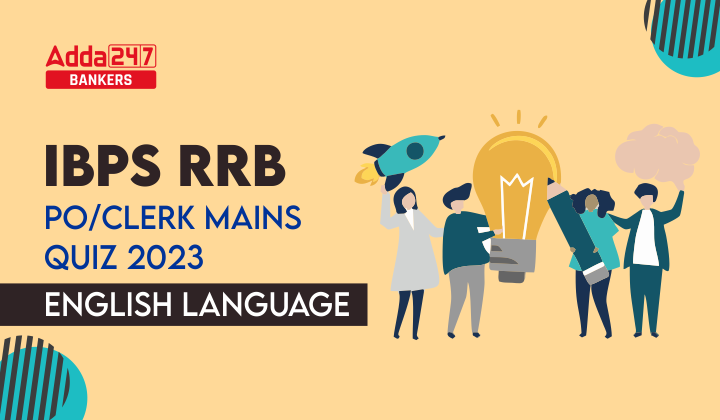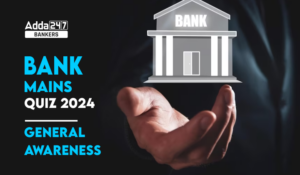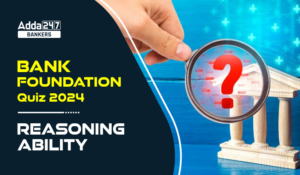Directions (1-10): Read the following passage carefully and answer the questions given below it. Certain words are given in bold to help you locate them while answering some of the questions.
The badlands of Bihar and Uttar Pradesh are not all bad; the states are sitting atop millennia-old attractions that have the potential to generate foreign exchange worth $1 billion, according to a FICCI-ICRA study. Sarnath and Bodhgaya are the most frequently visited Buddhist destinations, but there are scores of other similar sites associated intimately with the Buddha’s life and teachings, like Sanchi, Rajgir, Kushinagar and Vaishali, to name a few. One can extend the reach to Dharmasala in Himachal, Kalinga in Orissa, Lumbini in Nepal and so on, dividing the Buddhist Circuit into three categories, consisting of locations related to his life, where his icons are located, and places that are centres of learning and worship today. What the tourism ministry has been promoting as the Buddhist Circuit in Bihar and UP — Walk with The Buddha — had bagged 5 per cent of all inbound tourist traffic to India, that is 200,000 footfalls in 2004. However, infrastructural inadequacies like accommodation, airports, ground transport, medical facilities and sanitation, plus law and order problems, have deterred many a potential visitor from making the trip.
Brand Buddha balances the Incredible India campaign that is directed largely at top-end western markets through promoting the ‘ecstasy quotient’ in India’s heritage-soaked destinations, like Kerala with its Ayurvedic stress-relieving packages, beaches and backwaters, or an Ananda-in-the-Himalayas, a high-end spa that caters to the super-affluent. For the first time ever, India’s tourist arrivals touched 4.43 million in 2006, after having stagnated at around two million for decades. With interest revived in Nalanda, the eclectic university renowned for its Buddhist and Vedic traditions, and with better communication and transport facilities addressing high, middle and budget tourists, Brand Buddha has the power to transform the lives of millions who have been migrating out of their villages to cities like Mumbai and Delhi to make ends meet. The Buddhist Circuit is not hamstrung either by restrictions on the number of visitors, or want of places of interest. Rich in heritage and fertile with the Ganga, with a large youth component looking to lucrative career options, Sakyamuni could provide that vital push to help India establish itself as the most attractive regional tourism hub for South and South-East Asia. That the tourism ministry plans to position India as a hub for Buddhist tourism is a welcome step, and with Japanese help, a lot can be done to improve infrastructure. The 2,550th year of Buddha’s Mahaparinirvana is a good time to begin.
Q1. Why are the badlands of Bihar and UP not all bad, according to the author?
(a) because they represent the spiritual culture of our country
(b) because they have been the victim of negative publicity over the years
(c) because they have the capacity to compete with other states on the economic front
(d) because they have historical religious sites which can fetch foreign revenues
(e) None of these
Q2. According to a FICCI-ICRA study, the fortunes of Bihar and UP can change if
(a) people understand and respect the glorious past of the land.
(b) its sacred sites attract tourist inflow from other countries.
(c) its religious places are handed over to foreign institutions for better management.
(d) people stop migrating to other areas in search of livelihood.
(e) None of these
Q3. Why has the Buddhist circuit in Bihar and UP failed to draw visitors to its full potential?
(a) because of the rickety infrastructure and improper facilities there
(b) because of lack of advertisement on Buddhist circuit
(c) because of negligent attitude of the government officials
(d) because of religious misconceptions
(e) None of these
Q4.What is the meaning of the phrase ‘to make ends meet’ as used in the passage?
(a) to fulfil their dream (b) to make adjustments
(c) to earn livelihood (c) to save their earnings
(e) None of these
Q5.Which of the following is ‘false’ in the context of the passage?
(a) The interest of foreign tourists has grown towards India.
(b) The badlands of UP and Bihar contain positive aspects also.
(c) The infrastructure in the Buddhist circuit in UP and Bihar is far from satisfactory.
(d) Buddhist circuit can change the fortune of UP and Bihar.
(e) None of these
Q6. Which of the following is ‘true’ in the context of the passage?
(a) Incredible India campaign focuses mainly on top-end western markets.
(b) Buddhist circuit in Bihar and UP have failed to attract foreign tourists.
(c) Lack of infrastructure has not dampened the mood of the visitors from visiting the Buddhist sites in UP and Bihar.
(d) Tourist arrivals in India have remained stagnant over the years.
(e) None of these
Q7. How does brand Buddha balance the Incredible India campaign?
(a) It provides the tourists with holistic and spiritual solace.
(b) It drives tourists to even the remote places attached with Buddhism.
(c) It gives due weightage to religious tourism.
(d) It attracts low-and high budget segments of tourists both alike.
(e) None of these
Q8. Apart from generating foreign exchange, promoting of Buddhist circuit will
(a) generate employment opportunities for the local people.
(b) bring the South-East Asian countries under one economic zone.
(c) revive the interest of the common people in Buddhism.
(d) bring into limelight the neglected areas of the country.
(e) None of these
Directions (9-9): Choose the word which is the same in meaning as the word given in bold as used in the passage.
HAMSTRUNG
(a) restricted (b) bothered (c) strived
(d) neglected (e) rebuked
Directions (10-10): Choose the word which is the opposite in meaning of the word given in bold as used in the passage.
DETERRED
(a) assured (b) accompanied (c) appealed
(d) rewarded (e) encouraged
Solutions
S1. Ans. (d)
Sol. because they have millennia-old attractions (historical Buddhist sites) that have the potential to generate foreign exchange worth $1 billion.
S2. Ans. (b)
Sol. The fortunes of Bihar and UP will change due to its Buddhist attractions which have the potential to generate enough foreign exchange through foreign tourists.
S3. Ans. (a)
Sol. Last sentence of the first para contains the gist.
S4. Ans. (c)
Sol. to earn livelihood.
S5. Ans. (e)
S6. Ans. (a)
Sol. Brand Buddha balances the Incredible India campaign that is directed largely at top-end western markets.
S7. Ans. (d)
Sol. Second para contains the gist.
S8. Ans. (a)
Sol. Brand Buddha has the power to transform the lives of millions who have been migrating out of their villages to cities like Mumbai and Delhi to make ends meet.
S9. Ans. (a)
Sol. HAMSTRUNG means severely restrict the efficiency or effectiveness of. So, restricted is the word which is similar in meaning to it.
S10. Ans. (e)
Sol. DETERRED means prevent the occurrence of. So, encouraged is the word which is opposite in meaning to it.





 General Awareness Quiz for Bank Mains Ex...
General Awareness Quiz for Bank Mains Ex...
 English Language Quiz For Bank Foundatio...
English Language Quiz For Bank Foundatio...
 Reasoning Quiz For Bank Foundation 2024 ...
Reasoning Quiz For Bank Foundation 2024 ...





